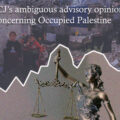Since its inception, the constitution of the People’s Republic of Bangladesh aspires to build a socialist society where every citizen would have right and opportunity to work and pursue any occupation. After forty years of independence, the aspiration remains to be just another decorating feature in the constitution. A large number of its population still strives to manage livelihood from informal employment that results in risky works but provides poor wage. Commonly known as the ‘informal workers’, they are marginalized in our society, despite their contribution to the national economy. They are not even recognized as ‘workers’ in the Bangladesh Labor Act of 2006. In order to achieve a pro-poor economic and human growth, we should ensure a minimum protection regime for them against all sorts of discrimination and unfair labor law and policy.
At this backdrop, the present article tends to figure out the problems concerning informal employment sector, and analyzes the government’s responsibilities to ensure informal workers’ rights as prescribed in the constitution. It also suggests sets of possible recommendation to improve the overall labor force situation in Bangladesh.
Generally, informal workers are engaged in production of goods or delivering services with the primary objective of generating income based mostly on casual employment, personal and social relations rather than contractual arrangements with formal guarantees. According to International Labour Organization (ILO), informal employment is perceived as any employment that refers to work outside the regulatory framework. In Bangladesh, “the terminology informal sector describes the activities that are not recognized, recorded, protected or regulated by the public authorities.”[1]
Hence, at this point we can say that an informal worker is anyone earning livelihood, through self-managed employment, which largely remains officially unprotected and is often socially unrecognized as a work. Instances of informal work force in Bangladesh include rickshaw pullers, housemaids, brick-breakers, day laborers, cleaners, boat rowers, fishermen and others. In Bangladesh the number of informal worker is very large but exact figure remains unknown. The Informal Sector Survey (ISS), by Bangladesh Bureau of Statistics (BBS) in 2010, reported that informal employment dominates the country’s labor market, being estimated at about 89% of total jobs.
Though informal economy plays a vital role in employment generation and distribution of goods and services, the account of sufferings of informal workers is endless in both forms and substances. For example, no payment-structure is available for rickshaw pullers or day laborers and work related benefit often does not reach them. Moreover, the instances of housemaid and child abuse have become common in recent days. Fishermen and boat rowers in deep sea are facing more frequent accidents while working and there is no proper safety education, training and adequate technological support for them.
In 2010, the Asian Development Bank (ADB) reported that casual or irregularly paid workers work an average of 54 hours a week with non-commensurate compensation and they are regularly disadvantaged comparing with the formal workers. Additionally, due to excessive labor and unhealthy work environment, they often suffer from malnutrition, physical and psychological disorder and endure diseases like respiratory trouble, heart attack and so forth. A recent report shows that workers in the brick-making factories catch bronchial-infection and skin diseases very easily. Since aforementioned works need an extreme physicality and the workers often take excessive workload, they end up taking drugs to boost up their physical and mental energy. Research shows that a large number of rickshaw-pullers are addicted to various drugs.[2] Since the basic necessities are hardly met, education for them and their children, adequate housing and medical facilities remain a mere mirage.
Additionally, due to excessive labor and unhealthy work environment, they often suffer from malnutrition, physical and psychological disorder and endure diseases like respiratory trouble, heart attack and so forth. A recent report shows that workers in the brick-making factories catch bronchial-infection and skin diseases very easily. Since aforementioned works need an extreme physicality and the workers often take excessive workload, they end up taking drugs to boost up their physical and mental energy. Research shows that a large number of rickshaw-pullers are addicted to various drugs.[2] Since the basic necessities are hardly met, education for them and their children, adequate housing and medical facilities remain a mere mirage.
Analysis of these facts demonstrate that the workers are trapped in a vicious circle of inhumane sufferings. The more they try to solve their problem by earning, the more they get into trouble by falling in different health and economic risks.
The government of Bangladesh is primarily responsible to strive for assurances and commitments pledged in the constitution for the informal workers. Article 10 of the constitution prohibits social exploitation and dreams for a socialist economy in Bangladesh. It has been clear that this provision does not advocate for any ideological socialism in the meaning of nationalization of the means of production; rather it mandates for an economic functioning that addresses and includes all the citizens from every walks of life in the process of production and distribution of wealth.
Article 14 directs the government to realize means whereby workers, backward groups can get rid of poor living standard. Guaranteed employment, work with reasonable wage, recreation and leisure are enumerated in Article 15, while Article 20 restates work be a right and a matter of honor for every citizen and assures workers be treated with justice.
However, to bring practical solution, the axiomatic fact needs to be acknowledged that Bangladesh government lacks essential ability to alter overnight the poor condition of the huge number of worker community. The principal aim, therefore, should be to meet the worker’s basic needs: fair wage, social safety, food, health care, standard accommodation and education.
As it appears, the main reason behind all the sufferings is a negative perception towards the informal workers; hence, we need to bring a positive shift in the attitude of the government while treating informal workers in law and policy. We should recognize that the unskilled workers have an important role in Bangladesh’s economy. Changes in government attitude may change public perception.
Second concern is about introducing a feasible wage structure which should be proportionate with working hour and consistent with the work nature of informal workers. Consideration of health hazards and associated risks with work environment must be taken into consideration. Here, the government should come out with a pragmatic solution to design a mechanism for minimum wage in the labor legislation.
Lastly and more importantly, a pension-cum-insurance scheme is required which can provide security during their sickness and elderly age. On registration, workers will be saving a portion of their income per month or per annum in a provident fund where the government will equally contribute. To give an example, the Delhi Government recently in September 2013 approved almost a similar pension scheme for the unorganized and informal workers in India.
Apparently these steps seem to be big tasks to carry forward, but an altruistic realization can make them possible and easy through time. We believe that the framers of Bangladeshi constitution did not dream for an economic development exclusive of underprivileged in our society. Because it is not too hard to realize social and economic progress, if the informal labor force gets proper recognition and legal protection in labor laws of Bangladesh. Progress can be made provided that our nation intends to mainstream those informal workers in all efforts of national development.
References:
1. Md. Ayub Ali, ‘Informal Labor Force’, in: Rashed Al Mahmud Titumir (ed.), Accumulation and Alienation: State of Labor in Bangladesh, Dhaka: Unnayan Onneshan, 2013, p. 71.
2. B. Nowrin, and S.S. Chowdhury, Rickshaw-Pulling: An Informal Sector for Finding a way out of Extreme Poverty, Asian University for Women, 2012.
Citation:
Kawsar Mahmood, “Protection for Informal Workers in Bangladesh: Problems and Prospects” (DHLR Blog, 14 April 2015) http://dhakalawreview.org/blog/2015/04/informalemployment-789









People reacted to this story.
Show comments Hide commentsI found it insightful an endeavor to address the necessity to address this crucial issue of informal workers in a right-based approach. Finger Crossed for Kawsar Mahmood and DHLR for this magnificent publication.